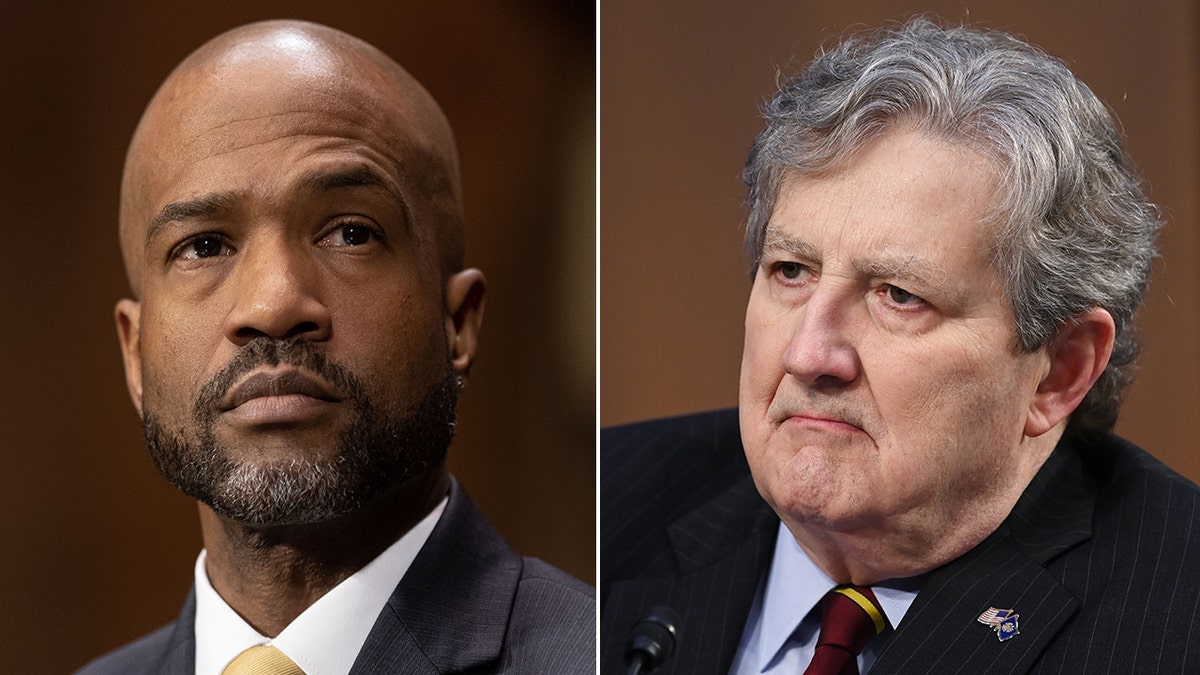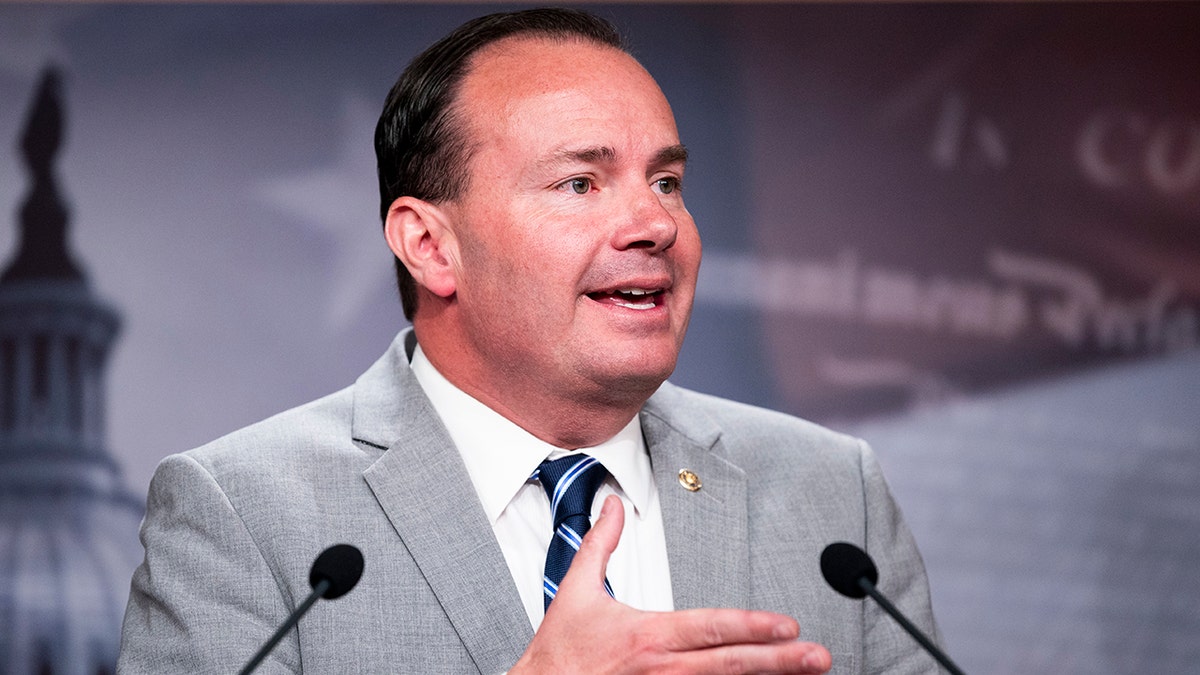Sen. John Kennedy slams 'activist' DA Alvin Bragg for going after Trump
Louisiana Sen. John Kennedy joins 'Fox & Friends' to discuss former President Trump's possible arrest.
EXCLUSIVE: Republican senators are calling President Joe Biden’s nominee for the U.S. District Court of Colorado "unqualified" for the job after the jurist was stumped by Sen. John Kennedy’s, R-La., questioning at his confirmation hearing last week.
Kato Crews, a magistrate judge, failed to answer Kennedy’s query on how to "analyze" a Brady motion, nor was he able to "define what a Brady motion is" when asked point-blank to do so. A Brady motion is a legal process in which a criminal defendant can force the prosecution to provide any evidence in a case that might prove the former to be innocent.
A federal law passed in 2020, and co-sponsored by Senate Judiciary Chairman Dick Durbin, D-Ill., requires all federal judges to affirm that prosecutors are obligated to hand over any potentially exculpatory evidence to the defense. It’s named after the landmark Supreme Court case Brady v. Maryland, which held that withholding evidence that might otherwise prove someone to be innocent is a violation of one’s due process rights.
Sen. Tom Cotton, R-Ark., a member of the Senate Judiciary Committee, said of Crews’ inability to answer the question, "Skill and merit are low on Joe Biden’s priority list. The only requirement that matters is political fealty to the party line."

Left: U.S. District Court Judge nominee Kato Crews. Right: Sen. John Kennedy, R-La. (Nathan Howard/Bloomberg/Mandel Ngan/AFP/Bloomberg)
His colleague on the panel, Sen. Mike Lee, R-Utah, accused the Biden administration of being willing to "sacrifice" knowledge of the law to advance their own politics.
"I would be hard-pressed to hire a law clerk who couldn’t answer Senator Kennedy’s questions," Lee told Fox News Digital. "But this administration is willing to sacrifice understanding of fundamental tenets of the law and a basic understanding of the Constitution in exchange for woke identity politics."
Sen. Rick Scott, R-Fla., told Fox News Digital that Biden’s nominees should be treated the same as any other job applicant when being considered for a role.
BIDEN JUDICIAL NOMINEE REFUSES TO SAY WHETHER RACIAL DISCRIMINATION IS WRONG

Sen. Tom Cotton (R-AR) heads to a meeting with Senate Republicans at the U.S. Capitol on November 16, 2022 in Washington, DC. (Anna Moneymaker/Getty Images)
"This is yet another example of the Biden administration advancing an unqualified candidate who is incapable of answering even basic, fundamental questions about core legal concepts," Scott said.
He added, "In any other job, a candidate failing to answer this simple of a question would be immediately disqualified. Why should Congress operate any differently?"
During Crews’ confirmation hearing on Wednesday, he was asked by Kennedy how he would analyze a Brady motion.
INTERNET SHOCKED AT BIDEN JUDICIAL NOMINEE'S FAILURE TO ANSWER SIMPLE QUESTION ON LEGAL PROCEDURE

UNITED STATES - JULY 20: Sen. Mike Lee, R-Utah., speaks during the news conference in the Capitol on Tuesday, July 20, 2021, to announce legislation which would require the president to consult with congressional leaders and obtain congressional authorization before exercising certain national security powers. ((Photo by Bill Clark/CQ-Roll Call, Inc via Getty Images))
"Senator, in my four and a half years on the bench, I don’t believe I’ve had the occasion to address a Brady motion in my career," the judge said.
CLICK HERE TO GET THE FOX NEWS APP
Asked what a Brady motion is, Crews replied, "In my time on the bench, I’ve not had the occasion to address that, so it’s not coming to mind what a Brady motion is." He later added that he believed it was "something regarding the Second Amendment."
Kennedy has been known to stump judicial nominees with straightforward process questions before. In January, Spokane County Superior Court Judge Charnelle Bjelkengren told Kennedy that "Article V is not coming to mind" after being asked what that article does in the U.S. Constitution.













































